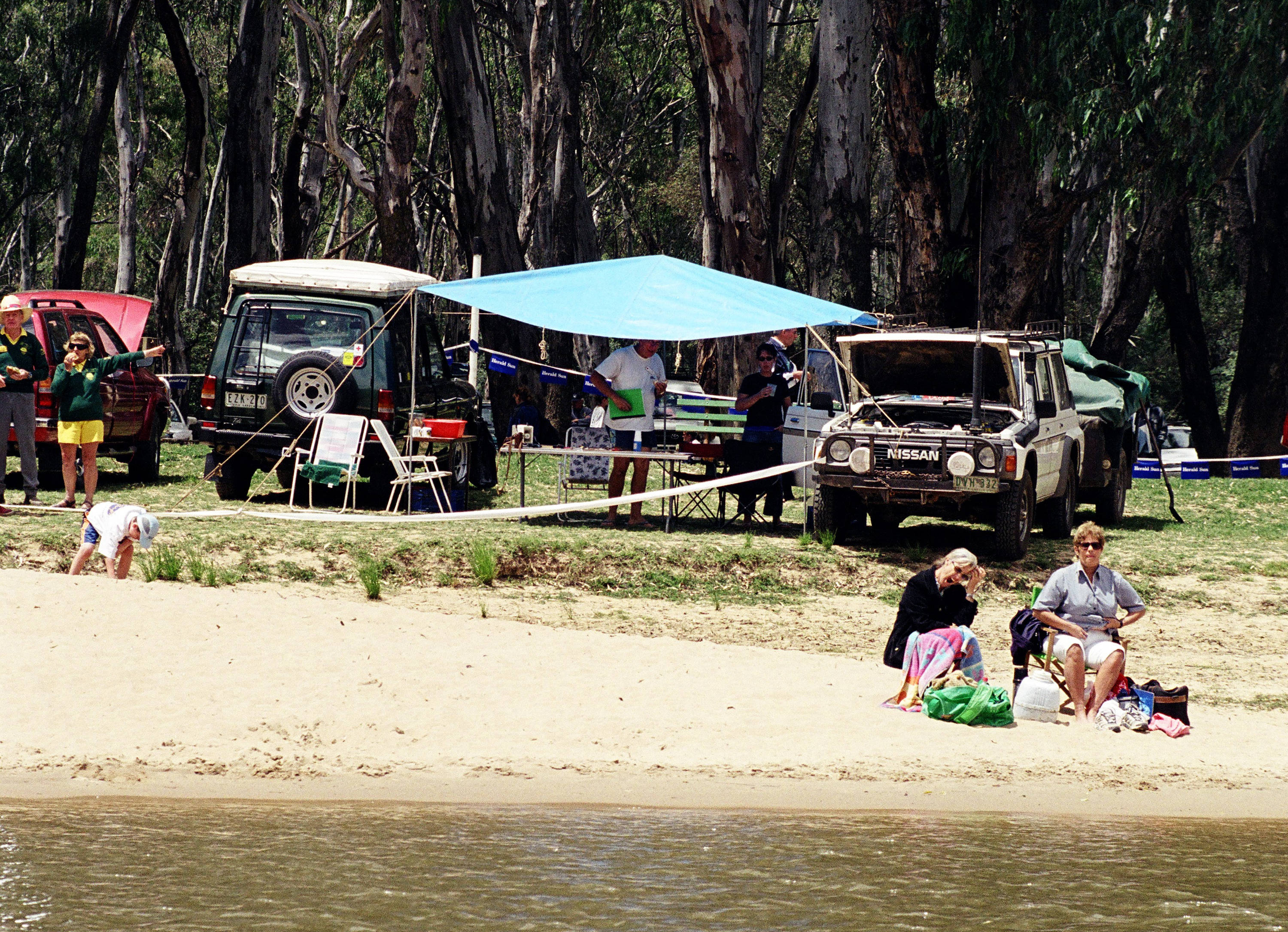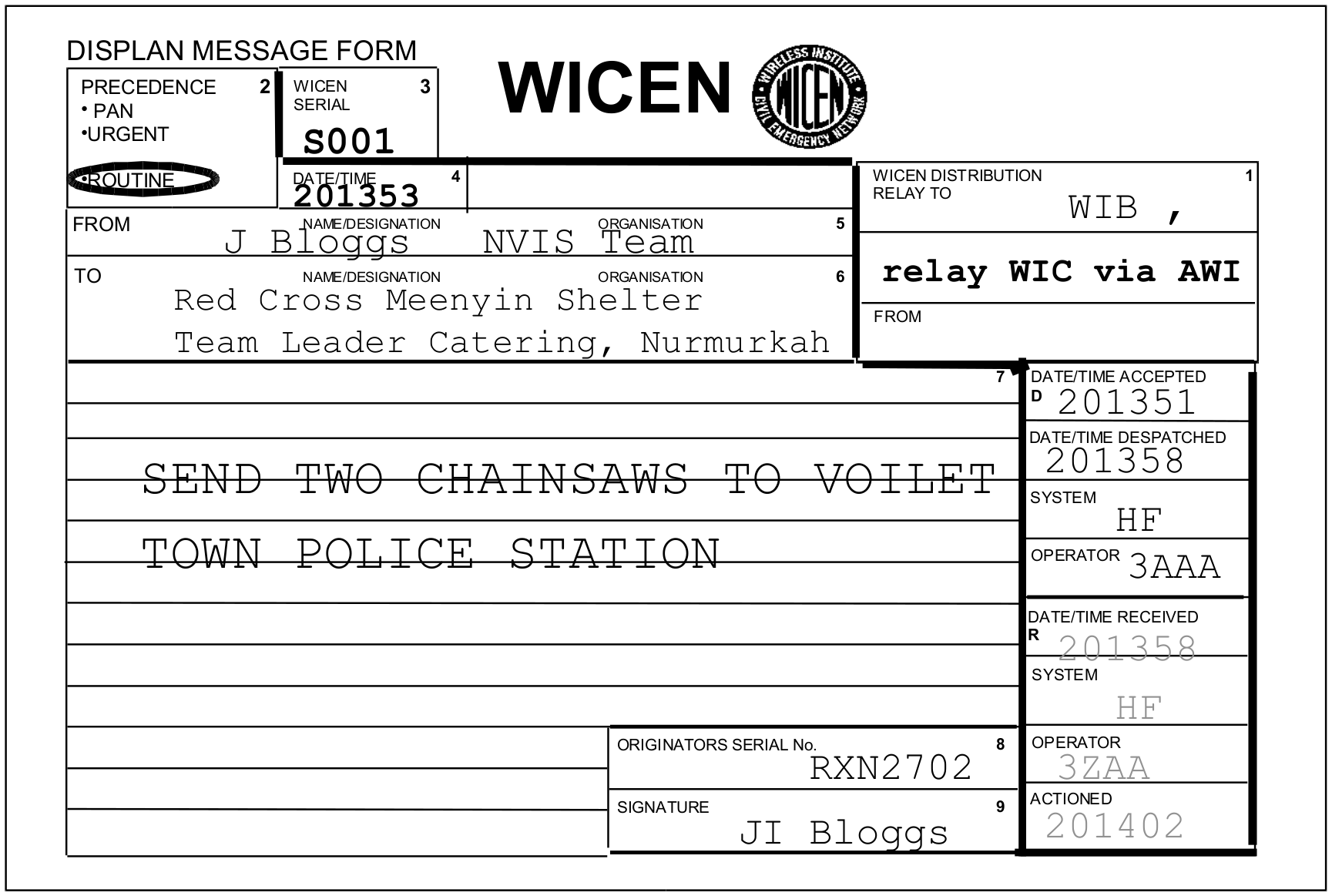Deaths at the Southern 80 ski race, WICEN volunteering
The Southern 80 ski race has been canceled this year after a fatality.
When I obtained my amateur radio license, one of the first voluntary groups I participated in was the Wireless Institute Civil Emergency Network (WICEN). It is similar to ARES / RACES (United States) and RAYNET-UK.
The Murray River is a remote location with very patchy mobile phone coverage. For decades, WICEN has provided communications services for events like the Southern 80 and also the Murray River Canoe Marathon.
As volunteers, we were given training, coordinated with the emergency services, to help deal with situations like this tragedy.
Volunteers with suitable vehicles could drive into various locations on the riverbank and establish a relay station using multiple bands. The rest of us would travel up the river on some of the boats. We had to be more creative in erecting antennas.
This is a photo I took of one of the fixed stations while going along the river in a boat:

The expectation was clear: that at 14 years old, I would be able to establish a communications checkpoint and relay messages for the paramedics, police and other emergency services when their own networks were out of range. Our network dramatically improved the potential response time of the air ambulance and other resources in cases where somebody was critically injured and every minute counts.
The amateur radio exam and participation in radio clubs gave me plenty of experience for the technical challenges of working independently in a remote place.
In addition to technical training, we were trained in the organizational procedures that allowed us to work effectively as a team with other services.
Particular emphasis was given to the importance of keeping accurate written records of every message and techniques to avoid mistakes when relaying a message verbally.
We were told why these records were important and who might be looking at them one day: the coroner. At each training session we were reminded that if somebody died, all our records would be given to a coroner for a public inquest.
There are training notes and a set of slides that examine the procedures in some detail. Some of it may seem mundane, nonetheless, every field on the message form serves an important purpose.

The coroner, in turn, would make a public report commenting on any aspect of a tragedy, including the role played by volunteers.
In the world of open source software volunteering, we have now had a number of fatalities. There are thousands of messages about these people hidden on mailing lists like debian-private (it has been leaked quite widely now). As far as I can tell, nobody told the coroners, employers or families of the victims that we have all these messages about the toxic culture of harassment and abuse.